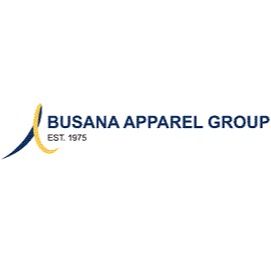Approved by curator

Added: Sep 01, 2022
Last edited: Sep 27, 2024
Rantai Tekstil Lestari (RTL), and it's forum Sustainable Textile Chain, is an initiative founded by seven textile companies and two non-profit organisations committed to taking the first step together in creating a sustainable textile clothing and fashion product industry in Indonesia to prepare for future global challenges. This is undertaken through meetings and forums that shape multi-sectoral partnerships and create collaborative platforms to take share action.
The COVID-19 pandemic poses various challenges for across industries around the world, including the textile industry. Textiles is one of the biggest industries in Indonesia, which also contributes to environmental and social problems. There is a need for collaboration in sharing experiences and best practices between organisations. Identifying new opportunities in an ongoing and post-pandemic environment and building a resilience in this sector for its economic future is necessary.
RTL was born from a collective concern for the importance of sustainability values in the textile and fashion industry supply chain in Indonesia. It formed as a joint force to create 'an inclusive and innovative collaboration in search of best solutions to improve economic, social, and environmental sustainability'. RTL was initiated by nine institutions across the textile and fashion industry, from brands to sustainability activist organisations. The founders include Asia Pacific Rayon, Busana Apparel Group, H&M Group, PT Asia Pacific Fiber Tbk, PT Pan Brothers Tbk, PT South Pacific Viscose Lenzing Tbk, Yayasan KEHATI, Yayasan Inisiatif Dagang Hijau, and PT Sri Rejeki Isman Tbk.
At the time of publishing this case study, several outcomes have been achieved:
- Capacity building through workshops and seminars
- A series of focus group discussions
- Member recruitment
Photo credit: Soroush Zargar (via Unsplash)
Case study submitted to the platform as part of the World Circular Textiles Day Collection.










Team up to create joint value
Incorporate digital technology
Industry collaboration
Digital platforms
Guidance, dialogue with industry stakeholders
Training on the circular economy
Online platforms
Education and Curriculum
Strengthen and advance knowledge
Ecological Impact
Social Impact
Economic Impact
Increase Awareness
Cost Savings
Revenue Potential
Productivity
Innovation
Scalability
Reduce Emissions (SDG13)
Minimise Waste (SDG12)
Save Water (SDG6)
Reduce Energy Consumption
Biodiversity
9. Industry, innovation and infrastructure
12. Responsible consumption and production
17. Partnerships for the Goals
stakeholder collaboration
forum
best practice
sustainable textile chain
